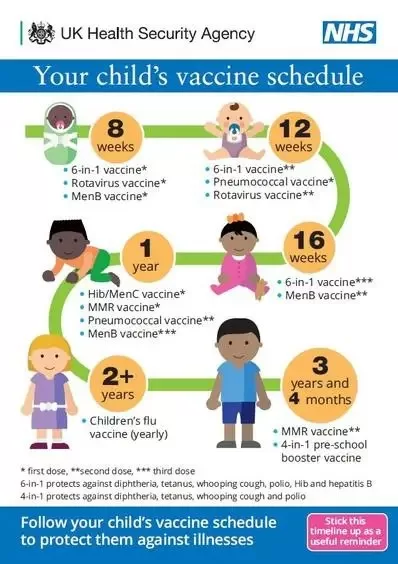When it comes to vaccines when your child is sick, many parents wonder about the best course of action. It can be concerning to think about vaccinations during illness, but reputable health organizations assert that it is generally safe for children to receive vaccines even if they are experiencing mild ailments. Conditions such as a low-grade fever, a common cold, or even mild diarrhea do not hinder the effectiveness of immunizations. In fact, keeping up with the child vaccination schedule is crucial for ensuring protection against serious diseases. Understanding when to vaccinate a sick child can ease parental anxiety and help in making informed decisions.
Navigating the landscape of immunizations can be challenging, especially regarding administering vaccines during episodes of illness. Parents often find themselves questioning the appropriateness of vaccination amidst various health concerns, including minor infections or fevers. It’s essential to recognize that such mild health issues do not significantly compromise the body’s responsiveness to vaccines for children. By adhering to the established vaccination during illness guidelines, caregivers can confidently maintain their child’s health and immunity. Proactive management of vaccination timelines helps safeguard children against potential outbreaks, fostering a healthier future.
Understanding Vaccines When Your Child Is Sick
When determining whether to vaccinate during illness, it’s vital for parents to understand that a mild illness typically does not prevent children from receiving their vaccines. Common conditions like a low-grade fever, a minor cold, or even a mild ear infection should not dissuade parents from sticking to the vaccination schedule set forth by healthcare professionals. Organizations such as the American Academy of Pediatrics advocate for vaccinations even during these mild conditions, emphasizing that the body’s immune response can handle the dual challenge of both the vaccine and the illness.
Postponing vaccines when a child is mildly ill can lead to unnecessary gaps in immunization schedules, making children vulnerable to serious diseases that those vaccinations are designed to prevent. By ensuring that children receive their vaccines in a timely manner, parents help safeguard their child’s long-term health and wellbeing.
The Importance of Timely Vaccinations
Adhering to the child vaccination schedule is crucial for maintaining a child’s health. Vaccines are most effective when given at the recommended ages, allowing the immune system to develop protection against potentially grave illnesses. Procrastinating vaccinations can elevate the risk of infection and hinder a child’s ability to combat diseases that sometimes have severe consequences.
Parents should be aware that vaccination during mild illness does not diminish the efficacy of the vaccine—rather, it plays a crucial role in fortifying the child’s immune defenses, ensuring they remain protected even when under the weather.
Mild Illness and Vaccines: What Parents Need to Know
It is important for caregivers to differentiate between mild and severe illnesses when it comes to child vaccinations. Conditions such as a runny nose or a slight fever are generally considered mild and do not warrant postponing vaccines. The immune system is designed to handle small illnesses while also building immunity from vaccines.
Mild side effects from a vaccination, such as soreness at the injection site or a slight fever, should not be confused with worsening illness. Parents can manage these effects effectively, ensuring their child remains comfortable while still receiving vital immunizations.
Vaccination During Illness: Guidelines from Health Organizations
Healthcare providers, including the American Academy of Family Physicians, highlight that vaccines can be safely administered to children even when they are experiencing mild illnesses. This guidance helps parents understand that their child can continue to receive necessary immunizations without delays.
It is essential for parents to communicate openly with healthcare professionals about their child’s health status. This ensures accurate advice tailored to the child’s specific health conditions and vaccination needs.
Dealing with Antibiotics: Vaccination Does Not Need to Wait
For children who are on antibiotics, there is no impact on the efficacy of the vaccines. This means that parents should not postpone their child’s vaccinations even if they are being treated for a mild illness, as the antibiotics do not interfere with the immune response.
Timely vaccinations remain critical in protecting children from various diseases, and staying current with the child vaccination schedule contributes to communal health, preventing outbreaks in the future.
Serious Illness and Vaccination Considerations
While mild illnesses pose no barrier to vaccination, serious or moderate illnesses require careful evaluation before proceeding with any immunizations. Parents must consult with their pediatricians to determine the right course of action for children who are ill.
Certain health conditions, such as chronic illnesses or weakened immune systems, might limit the number of vaccines children can receive. Healthcare providers can guide parents on which vaccines are safe and which may need to be postponed.
Preparation for Vaccinations: Before, During, and After Shots
Preparing your child for vaccinations involves more than just the day of the shot. Educating them about what to expect can ease anxiety and ensure a smooth experience. Parents can explain the vaccination process in simple terms and stress its importance in keeping them healthy.
During the vaccination, it’s helpful for parents to hold their child in a comforting manner and provide reassurance. Post-vaccination care, such as monitoring for side effects and providing comfort measures, is equally important in making the experience less stressful.
Making Shots Less Stressful for Children
Reducing stress during vaccinations can lead to a more positive experience for both children and parents. Simple techniques such as distraction with toys or stories can help ease anxiety and make the process more manageable.
Additionally, parents should consider using rewards or small incentives following vaccinations, such as a favorite snack or activity, to associate the experience with something positive.
Keeping Track of Vaccination Records for Your Child
Maintaining accurate vaccination records is crucial for tracking a child’s immunization history. This not only helps parents keep their child on schedule but also provides essential information for healthcare providers during visits.
Parents should ensure that all vaccines received, especially during times of illness, are documented appropriately to verify completeness of the child vaccination schedule.
The Role of Vaccines in Protecting Children’s Health
Vaccines are designed to prevent serious diseases and are a necessary part of public health strategies. Regular vaccinations contribute to herd immunity, which is vital in protecting those who are unable to receive vaccines due to medical conditions.
Educating families about the importance of vaccines in safeguarding children’s health, even during periods of mild illness, fosters a culture of awareness and compliance. Parents play a pivotal role in advocating for their child’s health by ensuring timely vaccinations.
Frequently Asked Questions
Can my child receive vaccines when they are sick with a mild illness?
Yes, your child can receive vaccines even if they have a mild illness, such as a low-grade fever, runny nose, or mild diarrhea. According to pediatric authorities, mild illnesses do not hinder the body’s ability to react effectively to vaccines, making it safe to proceed with vaccinations as per the child vaccination schedule.
What should I do if my child is on antibiotics regarding their vaccines?
Children on antibiotics for a mild illness can still receive vaccines. Antibiotics do not affect how the body responds to vaccinations. Therefore, you should not delay your child’s vaccinations if they are currently taking antibiotics.
Is it safe to vaccinate my child who has a cold?
Yes, it is safe to vaccinate your child if they have a mild cold. Vaccines can be administered even when a child has a slight illness, as it will not worsen their symptoms or interfere with the effectiveness of the vaccination.
When should I consider delaying vaccinations for my child?
You should consider delaying your child’s vaccinations if they are experiencing a moderate to severe illness, particularly if they have a high fever or chronic health conditions that weaken their immune system. Consult your child’s healthcare provider for specific advice.
What are the side effects of vaccines when my child is sick?
Mild side effects from vaccines, such as soreness, low fever, or swelling at the injection site, are common and usually resolve quickly. If your child has a mild illness, these side effects are not worsened by the vaccination.
How do mild illnesses affect the vaccination schedule for children?
Mild illnesses do not necessitate changes to the child vaccination schedule. Healthcare professionals generally recommend vaccinating children as scheduled, even during mild illnesses, to ensure they are protected against serious diseases.
What if my child has a severe allergic reaction to vaccines?
If your child has a history of severe allergic reactions to vaccines or vaccine components, you should discuss vaccination options with your child’s healthcare provider. They can provide guidance on which vaccines are safe for your child and any precautions needed.
How can I prepare my child for vaccinations when they are sick?
To prepare your child for vaccinations during a mild illness, reassure them, provide distraction techniques, and ensure they are comfortable during the process. It’s helpful to explain what to expect before, during, and after the vaccination to reduce anxiety.
Can vaccines strengthen my child’s immune response when they are mildly ill?
Vaccines do not worsen mild illnesses, and administering them during such times can still help bolster your child’s immune response. Vaccination ensures the body can build protection against diseases, regardless of a mild illness.
| Key Point | Details |
|---|---|
| Vaccination Timing | Vaccines can be safely administered to children with mild illnesses like low-grade fevers, colds, ear infections, or mild diarrhea. |
| Mild Illness and Vaccines | Mild illness does not impact the effectiveness of the vaccine, and there’s no health advantage to postponing vaccination. |
| Impact on Immune System | Vaccines contain small amounts of pathogens that the immune system can handle alongside mild illnesses. |
| Say About Antibiotics | Children on antibiotics can still receive vaccinations without affecting their immune response. |
| Serious Illness Considerations | Severe illnesses may require delaying certain vaccines; consult a doctor for guidance. |
| Post-Vaccination Care Tips | Parents should know how to hold and comfort their child during and after vaccinations. |
Summary
Vaccines when your child is sick can still be administered in most cases, especially if your child has only a mild illness. Understanding the guidelines for vaccination during such times ensures that children are protected without unnecessary delays. Consulting healthcare providers for recommendations based on your child’s health status is always advisable.
The content provided on this blog (e.g., symptom descriptions, health tips, or general advice) is for informational purposes only and is not a substitute for professional medical advice, diagnosis, or treatment. Always seek the guidance of your physician or other qualified healthcare provider with any questions you may have regarding a medical condition. Never disregard professional medical advice or delay seeking it because of something you have read on this website. If you believe you may have a medical emergency, call your doctor or emergency services immediately. Reliance on any information provided by this blog is solely at your own risk.








